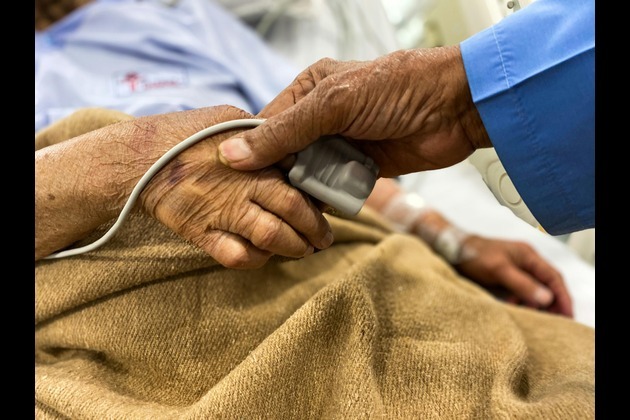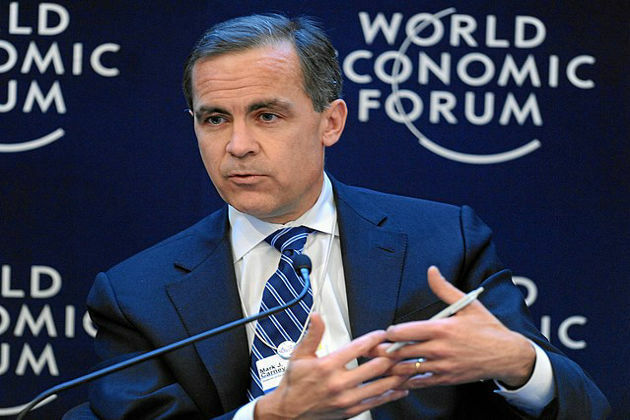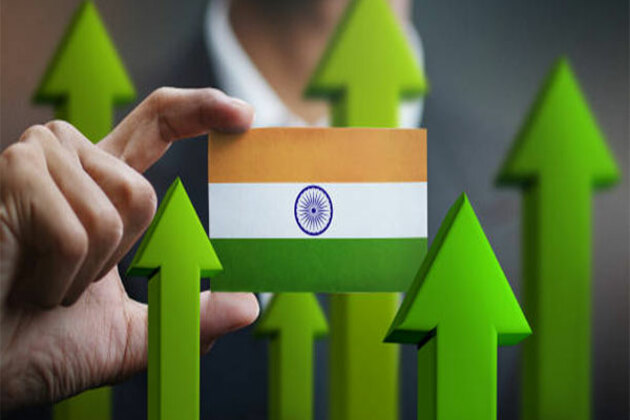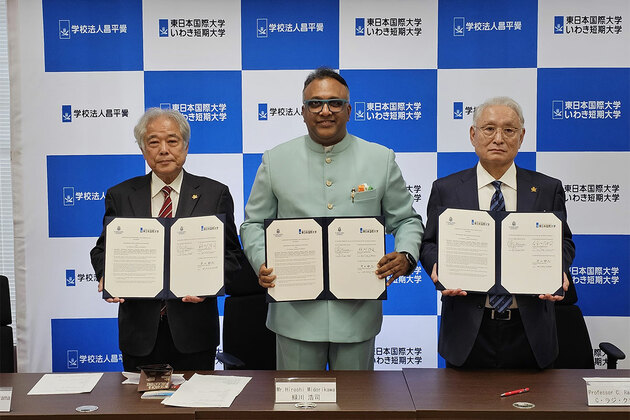Transformational benefits of ending outdoor defecation
United Nations
18 Nov 2019, 23:51 GMT+10
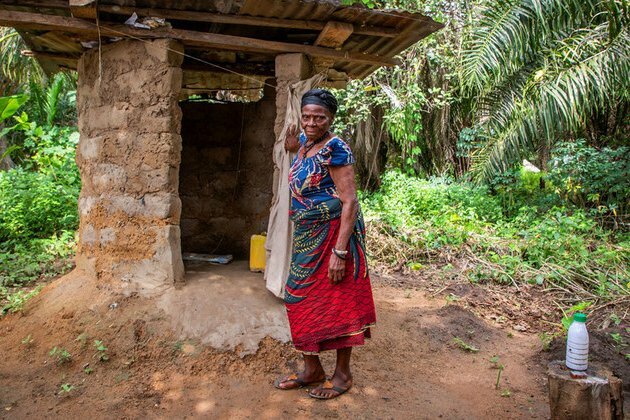
Ahead of World Toilet Day, which is marked annually on 19 November, WSSCC's acting Executive Director, Sue Coates, has been speaking to UN News about how to end open defecation.
Open defecation is when people defecate in the open - for example, in fields, forests, bushes, lakes and rivers - rather than using a toilet. Globally, the practice is decreasing steadily, however its elimination by 2030, one of the targets of the Sustainable Development Goals (SDGs) requires a substantial acceleration in toilet use particularly in Central and Southern Asia, Eastern and Southeast Asia and Sub-Saharan Africa.
UN agencies report that of the 673 million people practicing open defecation, 91 per cent live in rural areas. An increase in population in countries including Nigeria, Tanzania, Madagascar and Niger, but also in some Oceania states, is leading to localized growth in open defecation.
Open defecation is an affront to the dignity, health and well-being, especially of girls and women. For example, hundreds of millions of girls and women around the world lack privacy when they are menstruating. Open defecation also risks exposing them to increased sexual exploitation and personal safety and is a risk to public health.
According to the UN Children's Fund (UNICEF), one gram of faeces can contain 10 million viruses, one million bacteria and one thousand parasite cysts. Poor sanitation and hygiene practices (for example, not handwashing with soap after defecation and before eating) contribute to over 800,000 deaths from diarrhoea annually, according to the World Health Organization (WHO): that's more people than who die from malaria.
Open defecation has been practiced for centuries; it is an ingrained cultural norm in some societies. Stopping it requires a sustained shift in the behaviour of whole communities so that a new norm, toilet use by all, is created and accepted. Ending open defecation requires an ongoing investment in the construction, maintenance and use of latrines, and other basic services.
In Bangladesh, latrines provide women and girls privacy when they are menstruating. © WSSCC/Pierre Virot
On a day-to-day basis, the ability to use a toilet - at home and work, and in public places such as schools, health centres and markets - is a basic human right. Sanitation has transformational benefits supporting aspects of quality of life, equity and dignity for all people.
A lack of at least basic sanitation and hygiene services, including a lack of informed choice about menstrual health and hygiene, is a violation of the human rights to water and sanitation, as well as the rights to health, work, adequate standard of living, non-discrimination, human dignity, protection, information, and participation.
WHO and UNICEF report that in 2016, 21 per cent of healthcare facilities globally had no sanitation service, directly impacting more than 1.5 billion people, and over 620 million children worldwide lacked basic sanitation services at their school.
WHO estimates that every $1 invested in water and toilets returns an average of US $4 in saved medical costs, averted deaths and increased productivity. Hygiene promotion is also ranked as one of the most cost-effective public health interventions. Conversely, a lack of sanitation holds back economic growth.
Member States and UN agencies are committed to ending open defecation and have urged the provision of financial resources, capacity-building and technology transfer to help developing countries, to provide safe, clean, accessible and affordable drinking water and sanitation for all.
Sustainable Development Goal 6 (SDG 6), on clean water and sanitation, requires access to adequate and equitable sanitation and hygiene for all, and an end to open defecation, with special attention paid to the needs of women and girls, and those in vulnerable situations.
Increasingly, governments and their UN agency partners have roadmaps to tackle the issue, and WSSCC has been providing grants for community-based solutions for a decade. However, the SDG target is not on track.
Ensuring sanitation and water for all is one of the Sustainable Development Goals (SDG6) that make up the UN's 2030 Agenda for Sustainable Development An end to open defecation is a specific target within SDG6 The UN's Water Supply and Sanitation Collaborative Council (WSSCC), is hosted by UNOPS, the UN Office for Project Services WSSCC advocates for improved sanitation and hygiene for the most vulnerable and marginalized people in the world WSSCC and its partners have recently released a Global Call to Action, urging governments, donors, development partners and every other stakeholder to reaffirm their commitment to rural sanitation and hygiene and scale up their ambitions and investments.
It's estimated that the global annual cost for providing even basic sanitation services is $19.5 billion, but right now not enough funding is forthcoming. The UN Sustainable Development Goals Report in 2019 warns that while progress is being made in many SDG areas, the collective global response is not enough, leaving the most vulnerable people and countries to suffer the most.
 Share
Share
 Tweet
Tweet
 Share
Share
 Flip
Flip
 Email
Email
Watch latest videos
Subscribe and Follow
Get a daily dose of Central Asia Times news through our daily email, its complimentary and keeps you fully up to date with world and business news as well.
News RELEASES
Publish news of your business, community or sports group, personnel appointments, major event and more by submitting a news release to Central Asia Times.
More InformationInternational
SectionAssisted dying bill clears key hurdle in UK Parliament
LONDON, U.K.: In a landmark moment for Britain, lawmakers in the House of Commons have voted in favour of legalising assisted dying,...
International law no longer a priority among Western leaders
Western support for Israel's right to strike Iran backs up a pattern of pre-emptive violence that critics say is further eroding international...
Carney sets 30-day deadline for US trade deal
OTTAWA, Canada: Canada may boost its counter-tariffs on steel and aluminum imported from the U.S. if a comprehensive trade agreement...
Leaked call pushes Thai govt to the brink as allies waver
BANGKOK, Thailand: Thailand's government is facing its biggest crisis in nearly a year, as Prime Minister Paetongtarn Shinawatra's...
Trump orders U.S. to join Netanyahu's war on Iran
WASHINGTON, DC - U.S. President Donald Trump how bowed to pro-Israel elements in his administration and Congress, announcing that the...
Swiss National Bank responds to strong franc and US trade doubts
ZURICH, Switzerland: The Swiss National Bank (SNB) lowered its key interest rate to zero percent on June 19 to respond to falling inflation,...
Asia
SectionLeaked call pushes Thai govt to the brink as allies waver
BANGKOK, Thailand: Thailand's government is facing its biggest crisis in nearly a year, as Prime Minister Paetongtarn Shinawatra's...
New Zealand PM seeks stronger ties with China amid security talks
BEIJING/WELLINGTON: New Zealand's Prime Minister Christopher Luxon commenced his visit to China on June 17, seeking to strengthen trade...
Investigators examining Black Boxes recovered from Air India Boeing
NEW DELHI, India: Indian investigators are examining the black boxes from a Boeing 787 Dreamliner to determine the cause of a catastrophic...
Israel-Iran tensions could widen India's CAD by 0.3% of GDP, says ICRA
New Delhi [India], June 23 (ANI): If the heightened tension in the West Asia pushes average crude prices by USD 10 per barrel, it will...
"Gulf will be engulfed with fire if US continues aggression": West Asia expert Waiel Awwad warns of devastating consequences
New Delhi [India], June 23 (ANI): West Asia strategist Waiel Awwad on Monday shared his insights on the recent US airstrikes on Iranian...
JGU Signs 8 New MoUs with Leading Universities in Japan to Expand Academic Collaborations
OP Jindal University Tokyo [Japan] June 23: In a significant move that reinforces India's growing academic diplomacy with Japan,...

